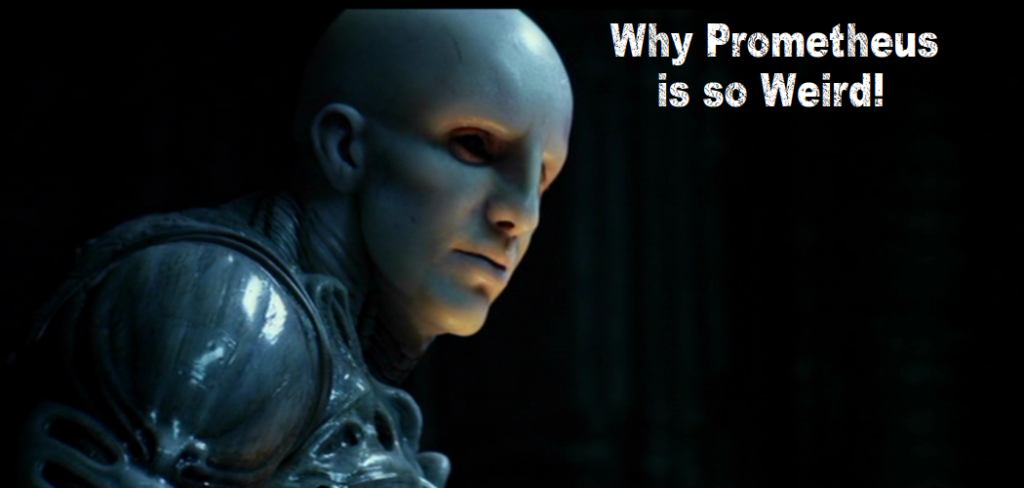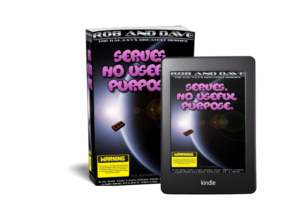Why Prometheus is so Weird!
The return of Sgt (Mad) Jack McAtkinson and Colonel S.S. (Warmonkey) Godwynn
Alien burst onto the screen in 1979, masterfully mixing slasher horror, psychological suspense and science-fiction. Ridley Scott created a masterpiece, a movie that broke the mould for creature and set design as well as redefining what science-fiction could be for a mainstream movie audience. Whether you love it or hate it, there’s no denying that Alien was brilliantly made, looked amazing and had a very strong sense of quality. It created almost as big a stir as Star Wars, especially with the more mature audience.
The sequel very smartly went in a slightly different direction, establishing its own identity and raising the bar in terms of action. As one of the best sequels ever produced, it appealed to an even wider audience, leaving it almost impossible for subsequent films to meet the standard it set. Ridley Scott backed away from the creative centre of the movie franchise until finally returning in 2012 to make a widely anticipated series of prequels.
‘Prometheus’ was first out of the gate and expectations were high. The audience hoped for a return to form of the original horror elements with the masterful conceptual designs and directorial brilliance of the first.
This isn’t what we got.
Prometheus is, to put it politely, an uneven mess that seems less like a taught, emotionally tense and smart movie, and more like a film-student created a script by licking the back of a poisonous toad, writing down a bunch of half-arsed ideas onto post-it notes, and then vomiting them into a fan. It was an awkward clash of ideas, mashing together pieces that didn’t want to fit and focusing on a crew who were even more confused than the audience. Like most Hollywood personalities, it looked amazing but had the depth of a muddy puddle.
It failed to properly connect with the original Alien movie by focusing on completely the wrong set of aliens. It tried to fill in the backstory of elements that had never before been in the foreground, addressing questions that nobody wanted answers to. It ignored the Alien xenomorph, the primary antagonist of the film and the thing that made the entire franchise so utterly compelling. It also did away with strong, well-written characters and replaced them with a clump of childish, irrational scientists who behaved like they had no idea what was going on.
It seemed like Ridley Scott had completely lost his mind.
Prometheus opens with a spectacular scene set on Earth, somewhere back in its prehistory. A white-skinned humanoid who appears to have a severe steroid addiction drinks a glass of something and then his body dissolves. Experts suggest it was probably Dominican rum.
The scene has remarkable production values and looks fantastic, but it doesn’t seem to fit—at all. Worse still, it becomes the primary theme of the movie, which completely ignores the expectations of the audience. It’s a bit like hiring a stripper who turns up and demands that you listen to her poetry instead.
So what does this all mean, and why would an established director and producer completely derail his own franchise to tell this story? Clearly there was some very important reason why he discarded everything that the audience wanted in order to do what he did?
To understand what it was that this film was based on, we have to go back a very long way into Earth’s history and delve into something that sounds very much like science-fiction itself. Now bear with me—this is going to be a bumpy ride!
Sumeria is widely considered to be the first example of a modern society. Several thousand years ago they invented language, calendars and agriculture, changing the world for the human race forever. They left behind a series of tablets that historians ignore, the content of which will never be taught in schools.
The tablets of Sumeria talked about their ancient past when the Anunaki, a race of ancient visitors from a far-off place came to our planet. These creatures were giants, around double our size, and came from a hidden planet in our own solar system called Nibiru, that passes by roughly every 5000 years. These beings came to our planet with their slave-race to mine gold, an element they needed to repair their damaged environment.
These slaves eventually rebelled due to their working conditions, and a plan was made to create a new replacement set of workers. These were genetically-engineered creatures that mixed the DNA of the local wildlife with the genetic template of the visitors themselves. That race was, of course, the human race.
At first, according to legend, they were a sterile male race of workers. When more slaves were needed, females were added to allow them to breed—which is echoed in the story of Adam and Eve. Their lifespans were limited so they wouldn’t achieve emotional maturity and education was denied out of fear that these humans would rise to power and overthrow their owners, as had happened before. This, of course, sounds a lot like a major plot element in Blade Runner. In the story of Adam and Eve, the apple represents education and learning, which the ‘God’ of old denied to humanity. This, perhaps, is why fruitarian Steve Jobs—a great lover of apples—of ‘Apple Corporation’ chose the apple with a single bite taken out as their logo when they began making educational machines.
The visitors, according to legend both in the Sumerian tablets and ancient religious texts, began to notice the ‘daughters of man were beautiful’ and began breeding with them. This created hybrids, the ‘Demigods’ of Greek legend and the ‘Nephilim’ in the bible. These sometimes took the form of ‘Goliath’ in some stories but were of normal human stature in others.
Eventually, according to the scrolls, the slaves spread and control was increasingly difficult to maintain. Global environmental disaster struck as their home-planet passed by, shifting the poles of the Earth and causing the biblical floods that are spoken of in virtually all religious histories.
Humanity survived—just—and began to spread out once more. The visitors retreated and left a selected elite group in charge. They were indoctrinated with the belief that the rest of the human race was simply cattle and nothing about them mattered—so long as order was maintained. They squabbled over who got to be in charge, and they’re still squabbling still.
If we know that Ridley Scott believed in this, then suddenly, Prometheus all fits together.
In the original Alien movie, the crew of the Nostromo discovers a derelict ship with the remains of a character aboard known as the ‘Space Jockey.’ It wasn’t an easy scene to make, so creating this being as a giant must have had some significance outside of the story, because it is never referenced in it. Due to cost constraints, the crew walking around in space-suits in this scene were actually children, which illustrates just how important this sequence was to Ridley Scott to achieve.
In Prometheus we see a being from the same race as the Space Jockey in Earth’s distant past, free of the bio-mechanical suit he wears. He sacrifices himself to seed our planet with his DNA. His body doesn’t simply dissolve, it becomes a key element in our planetary ecosystem.
According to the Sumerian tablets, humans were never meant to grow or to technologically evolve. The ‘gods’ feared them and were worried that they might overthrow them, stealing their power. This explains the reaction the ‘Engineer’ had when he discovers the humans have left their world to seek them out.
Weyland seeks immortality and likens himself to them, since he too has created a race of slaves. This is a common theme: humans creating robots or other kinds of servants is a reference to man becoming a god and getting closer to replacing the visitors. Slavery and ‘godhood’ are key elements of our collective psyche—ideas firmly rooted in the nature of who we are at an instinctive level.
Now the irrational anger of the Engineer makes perfect sense. Humans were meant to be kept in their place, not to challenge them, or to consider themselves their equal.
The Sumerian tablet describing the previous slaves is too damaged to get much information from, but simply describes them as ‘animals’. These workers are represented by the xenomorph themselves. Their hostility and violence isn’t because they were designed to be weapons, it’s a trait we see in ourselves that keeps us easy to control. You could even argue that the classic xenomorph is what you get when these aliens are infused with human DNA, but the queen is what you get when it takes over an Engineer. Perhaps the loss of the Space Jockey was yet another sacrifice, essential in yet another plot to destroy the human infestation?
The similarity in individual appearance and the visual impressiveness of the Engineers was due to them being genetically engineered themselves, not just because they were designed to look like ancient statues that represent our gods. This is yet another common theme, the circular return of history as one replaces another, over and over, like a perpetually spinning wheel. The Engineers engineered themselves, and then us, then we begin to engineer ourselves until we become the Engineers.
What’s really interesting is how Prometheus and Alien VS Predator had plots that shared many common tropes. In both cases, humanity was made as slaves, a disposable race of workers, with the Aliens being built along with them. In both, an aging leader is seeking to survive as his body fails him and in each, there are ancient temples that suggest that evidence of this is all around us.
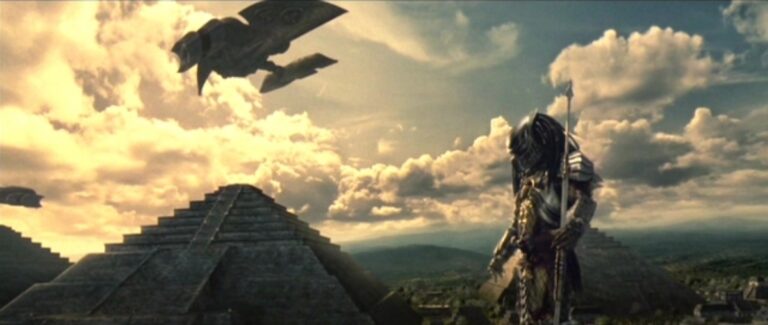
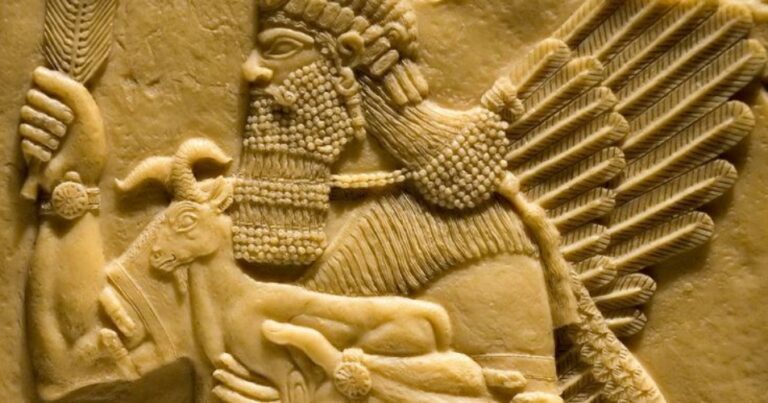
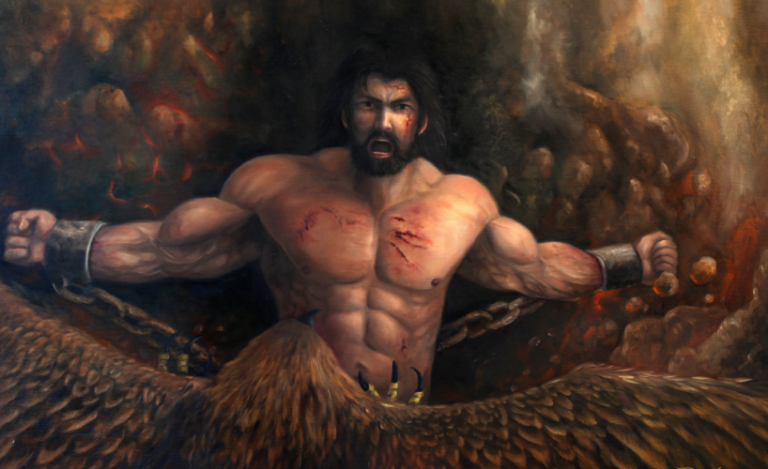
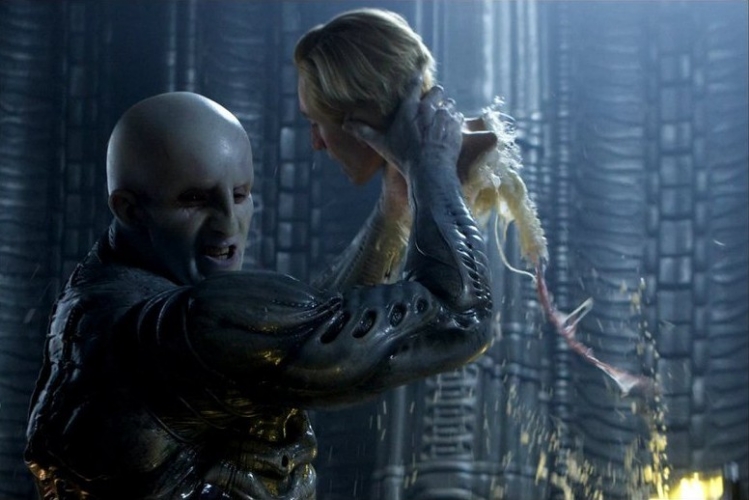
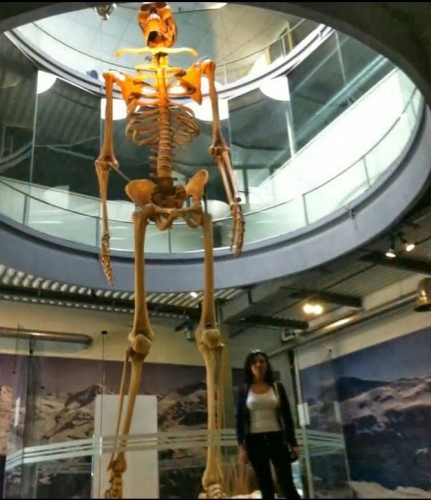
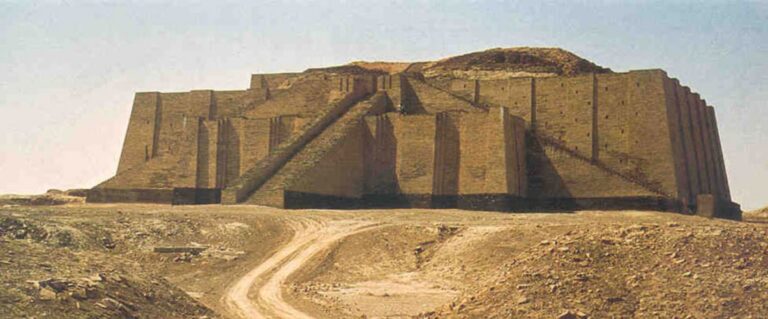
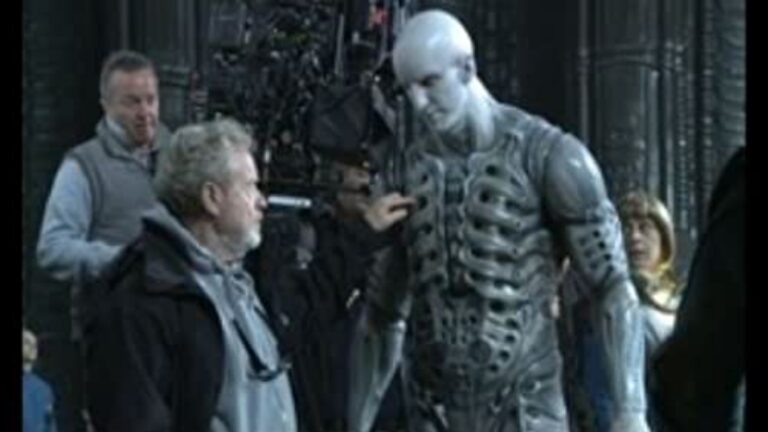
The Sumerian tablets and other ancient history is hidden in plain sight. It forms the basis of every secret society, contributes to every religion and is the reason behind what we see in many movies, including Prometheus.
It doesn’t matter if you believe any of this, it’s just important that you know that the people who made these stories do.
So when you watch these seemingly benign movies, never forget that they may not always be made by entirely benign people. There is always a story behind the story.
Many thanks for reading this article. We hope it was interesting, informative and entertaining. Follow us on social media or share our content on your own pages. It helps us grow so we can create more free content to help you.
Want a completely free sci-fi comedy?
Rob is a ginger waiter who successfully fails at dating. Dave delivers towels. Join them on an adventure that might change the entire galaxy – but won’t – as they drink free beer and travel out to the edge of the known galaxy for reasons that barely seem worth mentioning.
